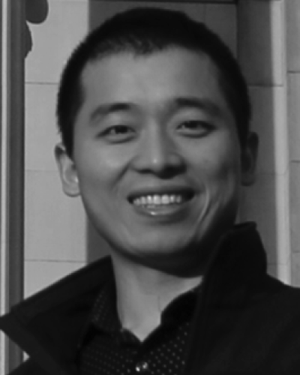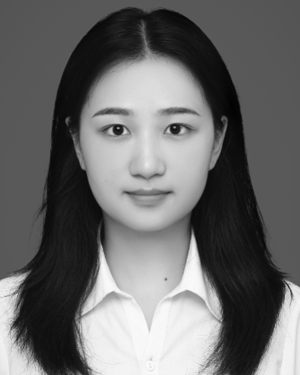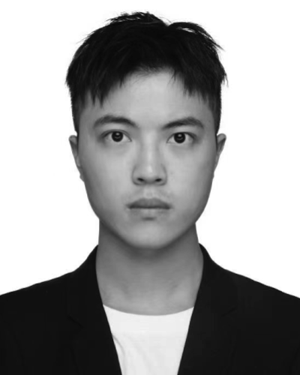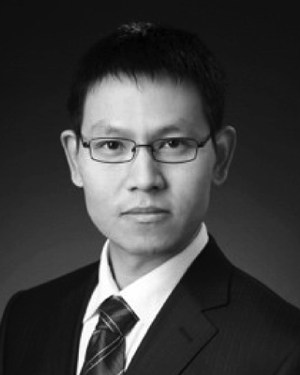Abstract:
This article designs a multisensor odor detection system for lung cancer detection, which can be used to collect exhaled gas and noninvasive predict lung cancer diseases....Show MoreMetadata
Abstract:
This article designs a multisensor odor detection system for lung cancer detection, which can be used to collect exhaled gas and noninvasive predict lung cancer diseases. In response to the widespread drift problem in multisensor odor detection systems in the medical context, we have added constraints that can represent interclass differences in the improved differential empirical distance and proposed a new formulation. Inspired by the principles of machine learning, we consider the source-domain data as nondrift data, while the target-domain data as cross-domain data. The derived enhanced category discrepancy domain adaption (ECDDA) framework considers the consistency between statistical and geometric distributions. Thereby improving the compensation performance of sensor drift by combining domain adaptation to reduce category distribution differences and Bayesian probability to extract category information, establish an unsupervised cross-domain category difference maximization model for drift compensation, overcome inter-board differences on different machines, and increase the sample size to a certain extent when used for medical data consolidation. The results show the effectiveness of the proposed design.
Published in: IEEE Sensors Journal ( Volume: 24, Issue: 10, 15 May 2024)
Funding Agency:

School of Microelectronic and Communication Engineering, Chongqing Key Laboratory of Bio-Perception and Intelligent Information Processing, Chongqing University, Chongqing, China
Jianghuai Advance Technology Center, Hefei, China
Junhui Qian (Member, IEEE) received the Ph.D. degree in signal and information processing from the University of Electronic Science and Technology of China, Chengdu, China, in 2018.
From 2016 to 2017, he was a Visiting Graduate Researcher with the Electrical Engineering Department, Columbia University, New York, NY, USA. He is currently an Associate Professor with Chongqing University, Chongqing, China. He is also with the...Show More
Junhui Qian (Member, IEEE) received the Ph.D. degree in signal and information processing from the University of Electronic Science and Technology of China, Chengdu, China, in 2018.
From 2016 to 2017, he was a Visiting Graduate Researcher with the Electrical Engineering Department, Columbia University, New York, NY, USA. He is currently an Associate Professor with Chongqing University, Chongqing, China. He is also with the...View more

School of Microelectronic and Communication Engineering, Chongqing University, Chongqing, China
Ziyu Liu received the bachelor’s degree in communication engineering from Chongqing University, Chongqing, China, in 2021, where she is currently pursuing the master’s degree with the School of Microelectronics and Communication Engineering.
Her research interests include electronic nose, transfer learning, and array signal processing.
Ziyu Liu received the bachelor’s degree in communication engineering from Chongqing University, Chongqing, China, in 2021, where she is currently pursuing the master’s degree with the School of Microelectronics and Communication Engineering.
Her research interests include electronic nose, transfer learning, and array signal processing.View more

School of Microelectronic and Communication Engineering, Chongqing University, Chongqing, China
Jinru Zhang received the bachelor’s degree from Nanjing University of Information Science and Technology, Nanjing, China, in 2022. She is now pursuing the master’s degree in information and communication engineering with Chongqing University, Chongqing, China.
During this period, her research interests include electronic noses and intelligent information processing.
Jinru Zhang received the bachelor’s degree from Nanjing University of Information Science and Technology, Nanjing, China, in 2022. She is now pursuing the master’s degree in information and communication engineering with Chongqing University, Chongqing, China.
During this period, her research interests include electronic noses and intelligent information processing.View more

School of Microelectronic and Communication Engineering, Chongqing University, Chongqing, China
Zhuoran Sun received the bachelor’s degree in communications engineering from Chongqing University, Chongqing, China, in 2022, where he is currently pursuing the master’s degree in information and communication engineering.
His main research interests include design of electronic noses and intelligent information processing.
Zhuoran Sun received the bachelor’s degree in communications engineering from Chongqing University, Chongqing, China, in 2022, where he is currently pursuing the master’s degree in information and communication engineering.
His main research interests include design of electronic noses and intelligent information processing.View more

Department of Automatic Test and Control, Harbin Institute of Technology, Nangang, Harbin, China
Ning Fu (Member, IEEE) received the B.S., M.S., and Ph.D. degrees from Harbin Institute of Technology (HIT), Harbin, China, in 2002, 2004, and 2009, respectively.
He is currently a Full Professor with the School of Electronics and Information Engineering, HIT. He has published more than 80 journal articles and conference papers. His current research interests include information acquisition theory, finite rate of innovatio...Show More
Ning Fu (Member, IEEE) received the B.S., M.S., and Ph.D. degrees from Harbin Institute of Technology (HIT), Harbin, China, in 2002, 2004, and 2009, respectively.
He is currently a Full Professor with the School of Electronics and Information Engineering, HIT. He has published more than 80 journal articles and conference papers. His current research interests include information acquisition theory, finite rate of innovatio...View more

School of Microelectronic and Communication Engineering, Chongqing Key Laboratory of Bio-Perception and Intelligent Information Processing, Chongqing University, Chongqing, China
Jianghuai Advance Technology Center, Hefei, China
Junhui Qian (Member, IEEE) received the Ph.D. degree in signal and information processing from the University of Electronic Science and Technology of China, Chengdu, China, in 2018.
From 2016 to 2017, he was a Visiting Graduate Researcher with the Electrical Engineering Department, Columbia University, New York, NY, USA. He is currently an Associate Professor with Chongqing University, Chongqing, China. He is also with the Jianghuai Advance Technology Center, Hefei, China. His current research interests include signal processing for MIMO radar and communicate on systems, artificial olfaction electronic nose, and biomedical and modern signal processing technology.
Junhui Qian (Member, IEEE) received the Ph.D. degree in signal and information processing from the University of Electronic Science and Technology of China, Chengdu, China, in 2018.
From 2016 to 2017, he was a Visiting Graduate Researcher with the Electrical Engineering Department, Columbia University, New York, NY, USA. He is currently an Associate Professor with Chongqing University, Chongqing, China. He is also with the Jianghuai Advance Technology Center, Hefei, China. His current research interests include signal processing for MIMO radar and communicate on systems, artificial olfaction electronic nose, and biomedical and modern signal processing technology.View more

School of Microelectronic and Communication Engineering, Chongqing University, Chongqing, China
Ziyu Liu received the bachelor’s degree in communication engineering from Chongqing University, Chongqing, China, in 2021, where she is currently pursuing the master’s degree with the School of Microelectronics and Communication Engineering.
Her research interests include electronic nose, transfer learning, and array signal processing.
Ziyu Liu received the bachelor’s degree in communication engineering from Chongqing University, Chongqing, China, in 2021, where she is currently pursuing the master’s degree with the School of Microelectronics and Communication Engineering.
Her research interests include electronic nose, transfer learning, and array signal processing.View more

School of Microelectronic and Communication Engineering, Chongqing University, Chongqing, China
Jinru Zhang received the bachelor’s degree from Nanjing University of Information Science and Technology, Nanjing, China, in 2022. She is now pursuing the master’s degree in information and communication engineering with Chongqing University, Chongqing, China.
During this period, her research interests include electronic noses and intelligent information processing.
Jinru Zhang received the bachelor’s degree from Nanjing University of Information Science and Technology, Nanjing, China, in 2022. She is now pursuing the master’s degree in information and communication engineering with Chongqing University, Chongqing, China.
During this period, her research interests include electronic noses and intelligent information processing.View more

School of Microelectronic and Communication Engineering, Chongqing University, Chongqing, China
Zhuoran Sun received the bachelor’s degree in communications engineering from Chongqing University, Chongqing, China, in 2022, where he is currently pursuing the master’s degree in information and communication engineering.
His main research interests include design of electronic noses and intelligent information processing.
Zhuoran Sun received the bachelor’s degree in communications engineering from Chongqing University, Chongqing, China, in 2022, where he is currently pursuing the master’s degree in information and communication engineering.
His main research interests include design of electronic noses and intelligent information processing.View more

Department of Automatic Test and Control, Harbin Institute of Technology, Nangang, Harbin, China
Ning Fu (Member, IEEE) received the B.S., M.S., and Ph.D. degrees from Harbin Institute of Technology (HIT), Harbin, China, in 2002, 2004, and 2009, respectively.
He is currently a Full Professor with the School of Electronics and Information Engineering, HIT. He has published more than 80 journal articles and conference papers. His current research interests include information acquisition theory, finite rate of innovation sampling, compressive sensing, and automatic test technology.
Ning Fu (Member, IEEE) received the B.S., M.S., and Ph.D. degrees from Harbin Institute of Technology (HIT), Harbin, China, in 2002, 2004, and 2009, respectively.
He is currently a Full Professor with the School of Electronics and Information Engineering, HIT. He has published more than 80 journal articles and conference papers. His current research interests include information acquisition theory, finite rate of innovation sampling, compressive sensing, and automatic test technology.View more


